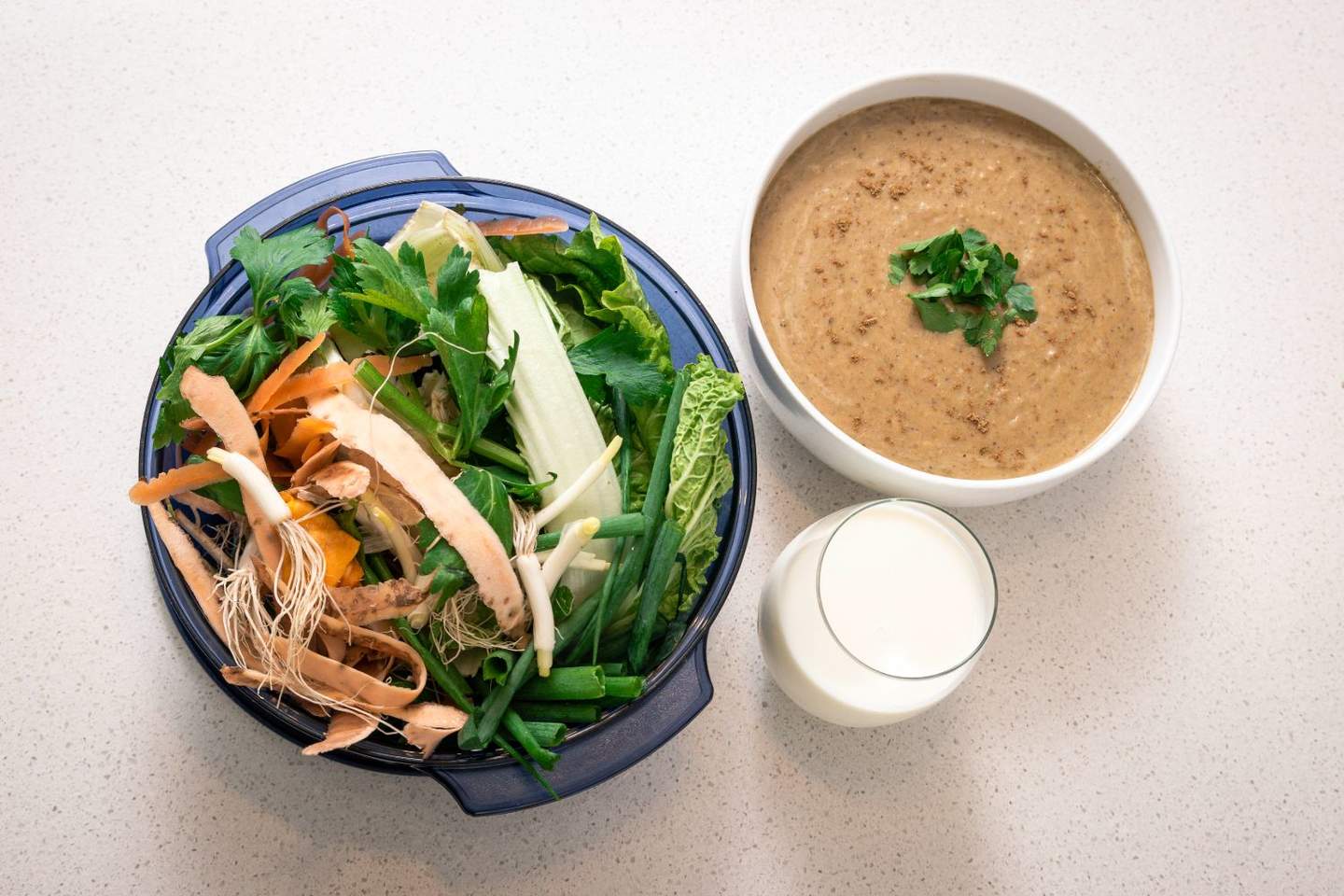Reducing food waste
Reduce the amount of avoidable food waste in your household through smart planning, smart shopping, smart cooking, and smart storage.
Check out our food waste reduction hints and tips below, and join our online sustainable living community.
Approximately 50% of the contents of Bayside garbage bins is food waste. Did you know that Baysiders throw out 14% more food waste than the average Victorian? Each year global food waste produces 4 times more greenhouse gas emissions than the whole international aviation industry.
So, what can we do?
Check out our food waste reduction hints and tips below to shop smarter, store better, use those leftovers and save money!
Getting started with smart planning
Foodwise meal planner
Good preparation is the first step!
The FoodWise meal planner helps you capture your favourite meals and translate them into a shopping list that can be easily accessed on a mobile device, printed out, or e-mailed to someone on the go.
The feature meal planner has a collection of 5-day plans designed to make your cooking week simple and tasty. Themes include seasonal produce and making the most of leftovers.
By regularly using these tools, you can take the guess work out of shopping and cooking and stop feeding the bin.
Become a smart shopper
Top tips for smart shopping:
- Take a list with you and check what is already in your fridge or pantry before hitting the shops.
- Prepare your list based on your meal plan and stick to your list when you’re in the store.
- Buying in bulk isn't cheaper if half of it ends up in the bin. Try and buy only what you can realistically eat before it expires.
- Another great way to save money, reduce waste, and eat local food is to grow your own fruit and veggies.
Buy seasonal produce
Buying produce that's in season is a great way to get fresh food. If it's grown locally, it also minimises the distance your food travels before it reaches your plate which reduces carbon emissions and often means your food will last longer, saving you money.
Shop at your local farmers' market
You can find out what is in season in your area and you'll be supporting your local growers. There are 3 farmers' markets in Bayside:
- Beaumaris Farmers' Market: held on the 2nd Saturday of every month, at Beaumaris North Primary School, 8am -1pm.
- Bayside Farmers' Market: held on the 3rd Saturday of every month, at Trey Bit Reserve, 8am - 1pm.
- Black Rock Farmers' Market: held on the 4th Saturday of every month, at Bayside City Council, 8am - 1pm.
Remember to take your own reusable shopping bags every time you shop.

Smart cooking
Recipes
Foodwise recipes
The FoodWise recipe database works with what you already have in the house to make quick and delicious meals. By entering in key ingredients that are in your fridge or pantry, the database recommends new meals and suggests options for transforming your leftovers into a scrumptious second meal.
Vegan and gluten free recipes are tagged. You can simply select these when you search the recipe finder.
The recipe database also offers tips and tricks on how to prepare, cook, and store the top 25 most wasted ingredients.
Want to eat in season?
The seasonal recipe guide is updated monthly and highlights the pick of the produce for each season with a selection of recipes and tips.
Creative leftovers
Leftover loving
- Vegetables that are starting to wilt can be made into soup.
- Fruit that is just going soft can be made into smoothies or fruit pies.
- A bit of tuna could be added to pasta and made into a pasta bake.
Check out this guide to commonly wasted foods and learn about how you can get more from the things we waste the most.

What's my shelf life?
Storing your food properly is one of the easiest ways for your household to save money. Get your food storage right and you could reduce the average $2000 a year that Victorian’s spend on the food they throw away.
Your fridge
Try to
- Keep all ready-to-eat foods visible and in your line of sight.
- Use clear airtight containers to store your leftovers.
- Stack upwards rather than pushing items backwards.
Shelf life tips
Knowing how long food stays fresh is a great way to reduce your household food waste.
Remember to always check the ‘best before’ or ‘use-by’ date before deciding what to do with your food. Foods with a ‘use-by’ date should not be eaten after that date has passed. A ‘best before’ date is simply an indication of when a food is at its best and foods can still be consumed after this date.
|
Food |
Fridge |
Freezer |
Pantry |
| Bread | 7 days | 3 months | 4 – 6 days |
| Milk | 7 – 10 days | 3 months | |
| Fruit | 7 days | 3 months | 1 week |
| Vegetables | 7 days | 12 months | |
| Potatoes & onions | 3 months | No | 1 – 2 weeks |
| Fresh herbs | 6 days | ||
| Beef | 2 days | 8 months | |
| Chicken | 2 days | 9 months | |
| Pork | 2 days | 6 months | |
| Lamb | 2 days | 12 months | |
| Fish & seafood | 2 – 3 days | 3-6 months | |
| Deli meat | 4 days | ||
| Eggs | 1 month | 1 year with prep* | |
| Yoghurt | 14 days | ||
| Cheeses | 14 days | 6 months | |
| Butter | 3 months | 9 months | |
| Cooked rice | 2 days | 3 weeks | |
| Cooked pasta | 3 days |
* Remove shell before freezing. Beat just until blended, pour into freezer containers, seal tightly, label with the number of eggs and the date, and freeze.
Fruit and veggie storage guide
Reduce waste by getting your food storage right. Follow this guide to keep your fruit and vegetables fresh and tasty.